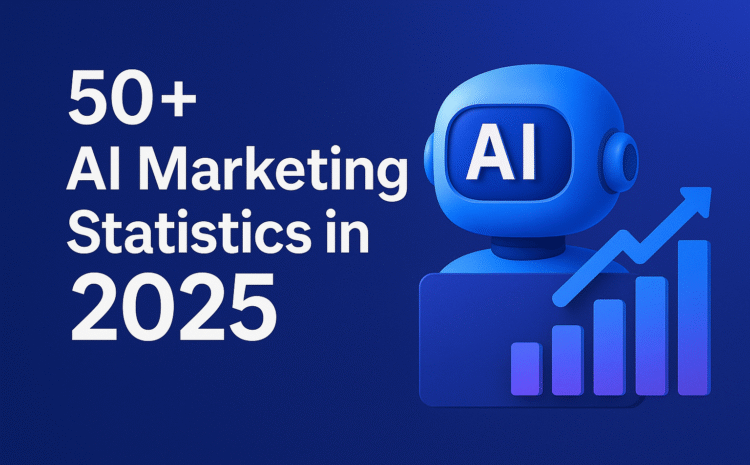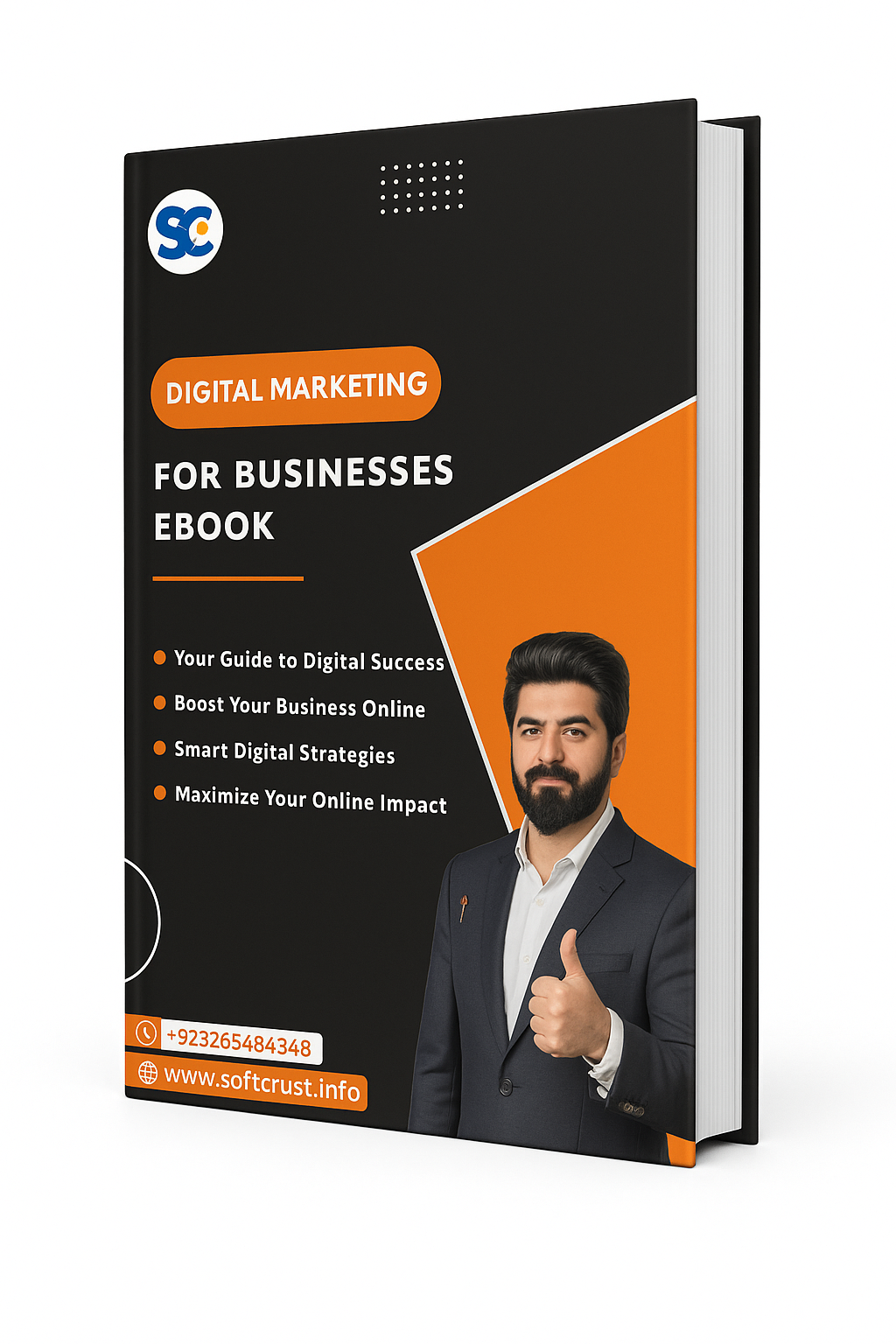50+ AI Marketing Statistics in 2025
When we started SoftCrust back in 2003, marketing was about intuition and traditional channels. Two decades later, we’re witnessing a transformation that’s reshaping marketing fundamentally. As a leading digital marketing agency recognized by GoodFirms in 2022, we’ve implemented AI across client campaigns and seen firsthand how it’s moving from an experimental tool to an essential capability.
The conversation has shifted from whether to adopt AI to how strategically you’re implementing it. After analyzing campaigns and industry reports, we’ve compiled the most comprehensive collection of AI marketing statistics for 2025 to show not just what AI can do, but what benefits it actually delivers for marketers who leverage it effectively.
The State of AI Adoption: How Widespread is AI in Marketing?
Overall Usage and Growth
- 75% of marketing professionals now actively use generative AI in their workflows, a significant increase from just 28% in 2023.
- The global AI marketing market has grown to $40 billion in 2025, demonstrating a steady 20% annual growth rate.
- 56% of marketers say their company is taking an active role in implementing and using AI, while 44% are waiting for more established solutions.
- 32% of marketing organizations have fully implemented AI, while 43% report experimenting with AI capabilities.
Business Impact and Sentiment
- 69% of marketing professionals feel excited about AI technology and its impact on their jobs, while 17% are both excited and worried.
- 83% of sales teams using AI saw revenue growth compared to 66% of teams not using AI.
- 70% of marketers expect AI to play a larger role in their work, with 48% saying increasing AI adoption is a top goal.
- The market size of generative AI in marketing is expected to reach $22 billion by 2032.
How Marketers Are Using AI: Key Applications and Benefits
Content Creation and Optimization
- 51% of marketers use AI tools to optimize content, from email campaigns to search engine optimization.
- 50% create content with artificial intelligence, while 45% use AI to brainstorm content ideas.
- 62% of marketers use AI for brainstorming new topics, while 53% use it for summarizing content.
- Marketers using AI for content creation report reducing production timelines by 80%, turning what once took days into minutes.
Personalization and Customer Experience
- 73% of marketers say AI plays a role in creating personalized customer experiences .
- 71% of consumers expect personalized interactions from brands, and 80% are more likely to purchase when these expectations are met .
- Personalized emails generate six times higher transaction rates than generic campaigns .
- Fast-growing companies see 40% more revenue from personalization compared to slower-growing competitors.
Operational Efficiency and Automation
- 43% of marketing professionals automate repetitive tasks and processes with AI software.
- AI can increase marketing productivity by 5-15% of total marketing spending, creating remarkable efficiency gains.
- 78% of marketers agree that AI helps reduce time spent on manual tasks like data entry and scheduling.
- 93% of PR professionals believe AI helps them complete work more efficiently, saving approximately five hours per week.
The Performance Impact: What AI Actually Delivers
Content Performance and Quality
- Content created with AI assistance shows 30% higher engagement rates on average compared to traditional methods.
- AI-optimized landing pages achieve 36% higher conversion rates, according to industry research.
- 86.5% of top-ranking pages now contain some amount of AI-generated content, demonstrating its effectiveness for SEO.
ROI and Business Outcomes
- Companies leveraging AI marketing solutions see an average ROI of 300% from combined revenue growth and operational savings.
- AI implementation leads to a 20-30% reduction in campaign production costs and a 15-25% decrease in customer acquisition expenses.
- 75% of companies report positive ROI from AI and automation investments, with 34% saying the return has been very positive.
Challenges and Considerations in AI Implementation
Adoption Barriers
- 39% of marketers aren’t sure how to safely use generative AI, while 43% say they don’t know how to get the most value from it.
- 54% say GenAI training is important for using it in their role, yet 70% report their employer does not provide this training.
- 31% of marketers have accuracy and quality concerns about AI outputs.
Performance Expectations and Changes
- 50% of marketers foresee performance expectations increasing due to AI capabilities.
- 49% of marketers and their teams expect to change tools and software, while 48% believe they may see changes in strategy or direction.
- Only 4% of B2B marketers report a high level of trust in generative AI’s outputs, while 67% say they have a medium level of trust.
The Future of AI in Marketing: 2025 and Beyond
Emerging Trends and Developments
- The marketing automation market is projected to reach $13.97 billion by 2030, showing the long-term staying power of AI technologies.
- AI could contribute up to $15.7 trillion to the global economy by 2030, with marketing applications playing a significant role.
- 79% of CMOs now view AI as an essential tool for competitive advantage in 2025 .
- Global AI investment continues to grow, with U.S. private AI investment reaching $109.1 billion in 2024.
Consumer Perspectives and Expectations
- Among Gen Zers, 66% are interested in AI that would help them through a product or website, while 63% like the idea of personalized deals.
- 90% of people prefer a human customer service representative to a chatbot.
- 41% of people under 34 have negative feelings about companies using AI in customer experience versus 72% of people over 65.
Implementing AI in Your Marketing Strategy: SoftCrust’s Perspective
Since our founding in 2003 and our recognition by GoodFirms in 2022 as a leading digital marketing agency, we’ve learned that technology should serve strategy, not replace it. The statistics clearly demonstrate that AI is no longer optional for competitive marketing, but implementation requires careful planning.
We’ve helped our clients achieve remarkable results by strategically implementing AI—one ecommerce client saw a 150% increase in organic revenue within 12 months through AI-powered personalization and content optimization. Another client in the professional services space reduced their content production time by 50% while maintaining quality.
For businesses looking to harness AI, we recommend starting with your biggest pain points rather than attempting to overhaul everything at once. As the data shows, the most successful implementations maintain human oversight for strategy and editing while leveraging AI for research, drafting, and optimization tasks.
FAQs
How will generative AI change the creative process for marketing teams?
It enables rapid idea generation and content creation, letting humans focus on creativity, strategy, and brand storytelling.
What’s the impact of AI tools on consumer trust and transparency?
AI boosts personalization, but brands must disclose AI use to maintain trust and authenticity with audiences.
How can small businesses use AI marketing effectively?
Start small with affordable tools for content, email, or SEO, then scale as ROI and confidence grow.
What’s next for AI marketing innovation?
AI will evolve from assistant to autonomous agent, managing real-time campaigns with ethical oversight.
Conclusion
The statistics from 2025 paint a clear picture: AI has moved from experimental technology to a core marketing function that delivers measurable improvements in efficiency, personalization, and ROI. From the 80% reduction in content creation time to the 300% average ROI, the numbers demonstrate that strategic AI implementation is no longer a luxury but a competitive necessity.
As we look toward the rest of 2025 and beyond, the question isn’t whether to adopt AI marketing tools, but how quickly you can integrate them into your strategy while maintaining the human creativity and strategic thinking that builds genuine customer connections.
At Soft Crust Digital Experts, we’ve been helping businesses navigate digital marketing transformations since 2003, and we’re confident that the brands that will thrive are those that master the balance between technological capability and human insight.




